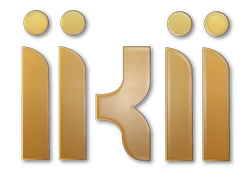Research Article
Construction and Implementation of Health Education Curriculum from the Perspective of Internet Technology
More Detail
1 Beijing No.27 High School, Beijing 100006, China* Corresponding Author
Educational Innovations and Emerging Technologies, 4(3), 2024, 1-7, https://doi.org/10.35745/eiet2024v04.03.0001
Published: 10 November 2024
OPEN ACCESS 1040 Views 277 Downloads
ABSTRACT
In the context of Internet Technology educational informatization has created numerous conveniences for "health education" curriculum teaching, while also diversifying teaching methods and models. The construction and implementation of the health education curriculum enhance students' core competencies and play a significant role in their growth and development. This study, based on the perspective of Internet Technology takes the construction and practice of health education curriculum as an example. By examining the core literacy, topicss, contents, and types of the curriculum during its development, the study elaborates on the design of curriculum construction. Furthermore, it introduces the implementation of the curriculum in terms of instructional guidance strategies, teaching methods, and the execution of various course types. The study also expounds on the paths and situations where Internet Technology empowers the health education curriculum. The achievements of health education curriculum construction are manifested in the establishment of a relatively complete curriculum framework; improved teaching quality; nurtured students' health concepts, knowledge, and skills; and enriched practical teaching in health education. Additionally, the study reflects on the unique features of health education curriculum teaching, as well as innovations in teachers' instruction and students' learning.
CITATION (APA)
Wang, H. (2024). Construction and Implementation of Health Education Curriculum from the Perspective of Internet Technology. Educational Innovations and Emerging Technologies, 4(3), 1-7. https://doi.org/10.35745/eiet2024v04.03.0001
REFERENCES
- Chang, SH. Li, J. (2015). The Construction of Core Literacy System under the Background of Deepening Curriculum Reform. Curriculum, Textbooks, Teaching methods. 35(09),29–35. doi:10.19877/j.cnki.kcjcjf.2015.09.005.
- Gao, R. Zhang, J. Mao, ZH.(2007). Reflection on the Reform of Physical Education and Health Curriculum in Basic Education in China. Journal of Beijing Sport University. (01),74–77. doi:10.19582/j.cnki.11-3785/g8.2007.01.029.
- Huan, G.Ye, W. (2023).The Promotion Path of the Connection between Preschool and Primary Physical Education under the Concept of the Curriculum Standards for Physical Education and Health in Compulsory Education (2022 Edition). Journal of Physical Education. 39(01),8–13. doi:10.16419/j.cnki.42-1684/g8.2023.01.007.
- Liu, M. Sun, Q. Fu, Y. (2006).Reflection on the Reform of Physical Education and Health Curriculum in Basic Education. Sports Science. (10),75–81. doi:10.16469/j.css.2006.10.012.
- Liu,J.(2022). Highlights and Major Changes in the Curriculum Standards for Physical Education and Health in Compulsory Education (2022 Edition). Curriculum, Textbooks, Teaching methods. 42(10),54–59. doi: 10.19877/j.cnki.kcjcjf. 2022.10.002.
- Liu,H.(2023). Research on the Construction of Health Knowledge and Students' Sports Behavior under the Background of Health First. Contemporary Sports Technology. 13(10),170–173. doi:10.16655/j.cnki.2095-2813.2212-1579- 3046.
- Pan,Q.(2022). Research on the Current Situation and Strategies of Primary School Physical Education and Health Education Curriculum from the Perspective of Healthy China. Contemporary Sports Technology. 12(34),165-169.doi:10.16655/j.cnki.2095-2813.2209-1579- 0409.
- Pan, SH. (2022).Explanation of the Concept of Cultivating Core Literacy in China's Compulsory Education Physical Education and Health Curriculum. Journal of Capital Institute of Physical Education. 34(03), 234–240. doi:10.14036/j.cnki.cn11-4513. 2022.03.002.
- Pang, D. You, H. Wang,L.(2023). A Study on the Changes of the Curriculum Standards for Physical Education and Health in Compulsory Education from the Perspective of Multi source Flow Theory. Sports Research and Education. 38(02),52–60. DOI:10.16207/j.cnki.2095- 235x.2023.02.015.
- Tang, X. Liu, Y. Liu, D. Ding,K. Dou, ZH. Zhang,L. (2022).Analysis of the current situation and influencing factors of health education curriculum in primary and secondary schools in China. Health education in China. 38(02),103–106. doi:10.16168/j.cnki.issn.1002- 9982.2022.02.002.
- Wang,H.(2017a).Development and Future of Creativity Teaching. Knowledge Economy, Science And Technology, Neurosciences and Creativity.Proceedings of the 3rd International Conference on Arts, Design and Contemporary Education (ICADCE 2017), 29–30 May 2017, Moscow, Russia; 780–783 .doi: 10.2991/icadce-17.2017.189.
- Wang,H.(2017b).The Integration of Media literacy education into Ideology and morality education at China’s High Schools.Proceedings of the 2nd International Conference on Contemporary Education, Social Sciences and Humanities (ICCESSH 2017), 14–15 June 2017, Moscow, Russia; 191–197. doi: 10.2991/iccessh-17.2017.46.
- Wang, H. Zhong, T.(2019). Analysis on the Research Hotspots and Trends of the Media Literacy Education for Chinese Students.Proceedings of the 2nd International Conference on Contemporary Education, Social Sciences and Ecological Studies (CESSES 2019) , 5–6 June 2019, Moscow, Russia; 146–150.doi: 10.2991/cesses-19.2019.35.
- Wang, H. Liu, Y. Han, Z. Wang,J.(2020). Extension of Media Literacy from the Perspective of Artificial Intelligence and Implementation Strategies of Artificial Intelligence Subjects in Junior High Schools. 2020 International Conference on Artificial Intelligence and Education , 26–28 June 2020, Tianjin, China; 63–66.doi: 10.1109/icaie50891.2020.00022.
- Wang, X. (2022).The Content Structure and Characteristics of the Curriculum Standards for Physical Education and Health in Compulsory Education (2022 Edition). Journal of Capital Institute of Physical Education. 34(03),241–252. doi:10.14036/j.cnki.cn11-4513.2022.03.003.
- Wang, L. Chen, Y. Li, Q. (2023).Analysis of the Curriculum Standards for Physical Education and Health in Compulsory Education (2022 Edition). Education and Teaching Research. (3),9. doi:10.13627/j.cnki.cdjy.20230321.001.
- Wang, H. (2024). Reflections on the Application of Virtual Reality (VR) Technology to Morality and Rule of Law Education. Educational Innovations and Emerging Technologies, 4(2), 20–23. https://doi.org/10.35745/eiet2024v04.02.0003
- Xie, L. Xin Long, X. Zhang, X. Zhang, H. Ji, Y. (2022).Design and Practice of Health Education Curriculum for Senior Primary School Students in Beijing. Health education in China. 38(09),849–854. doi: 10.16168/j.cnki.issn.1002- 9982.2022.09.017.
- Yang, W. (2011).Reflections on the Revision of the Curriculum Standards for Physical Education and Health. Sports Journal. 18(05),1-3.doi:10.16237/j.cnki.cn44–1404/g8.2011.05.005.
- Zhuo, X. (2022).Research on Optimizing the Model of Physical Education and Health Education in Universities in the Context of Life Safety. Contemporary Sports Technology. 12(24),170–173. doi:10.16655/j.cnki.2095-2813.2201-1579- 1945.

 OPEN ACCESS
OPEN ACCESS

 The articles published in this journal are licensed under the CC-BY Creative Commons Attribution International License.
The articles published in this journal are licensed under the CC-BY Creative Commons Attribution International License.